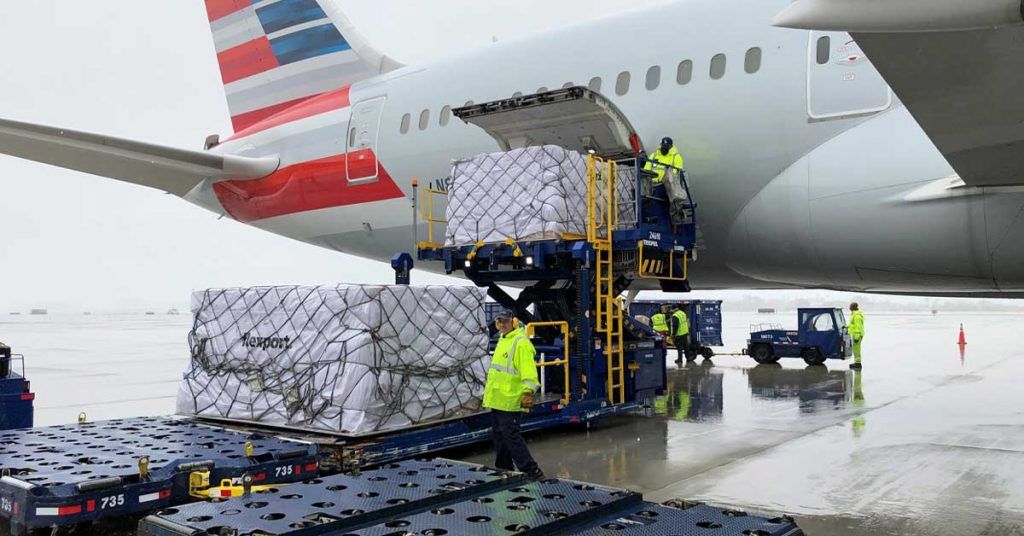Global air cargo demand, measured in tons of cargo per kilometer (CTK), fell 20.3% in May (-21.5% for international operations) compared to the previous year.
That’s an improvement from the 25.6% year-on-year drop registered in April, reported the International Air Transport Association (IATA).
As a result, capacity remains unable to meet demand as a result of the loss of belly-loading operations on passenger planes that have been parked.

Global capacity, measured in available load per tonne-kilometer (ACTK), decreased by 34.7% in May (-32.2% for international operations) compared to the previous year, a slight slowdown from 41.6% year-on-year drop in April.
Air cargo
Belly capacity for international air cargo decreased by 66.4% in May compared to the previous year, due to the withdrawal of passenger services amid the Covid-19 crisis (slightly more than 75.1% of annual decrease in April).
This was partially offset by a 25.2% increase in capacity through the expanded use of cargo aircraft.
The load factor (CLF) increased 10.4 percentage points in May.
This was a slight decrease from the 12.8 percentage point increase in April.
However, the scope of the increase suggests that there is still a cumulative demand for air cargo that cannot be met due to the continued grounding of many passenger flights.
Global export orders continue to fall, but at a slower rate. The Purchasing Managers Index (PMI) that tracks new manufacturing export orders improved from the low seen in April despite remaining in contract territory.
“Air cargo demand decreased by more than 20% compared to 2019. And with most of the passenger fleet, ground capacity decreased 34.7%. The gap between demand and capacity shows the challenge of finding the space on the plane that still flies to bring goods to market.
«For that, the prospects for air cargo remain stronger than for the passenger business, but the future is very uncertain. Economic activity is recovering from April lows as some economies are unlocking. But predicting the length and depth of the recession remains difficult, «said Alexandre de Juniac, IATA CEO.

May regional performance
All regions suffered declines in May. Airlines in Europe and Latin America suffered the largest declines in year-on-year growth in total air cargo volumes, while airlines in Asia-Pacific and the Middle East experienced slightly less dramatic declines. Airlines in North America and Africa recorded more moderate drops compared to the other regions.

